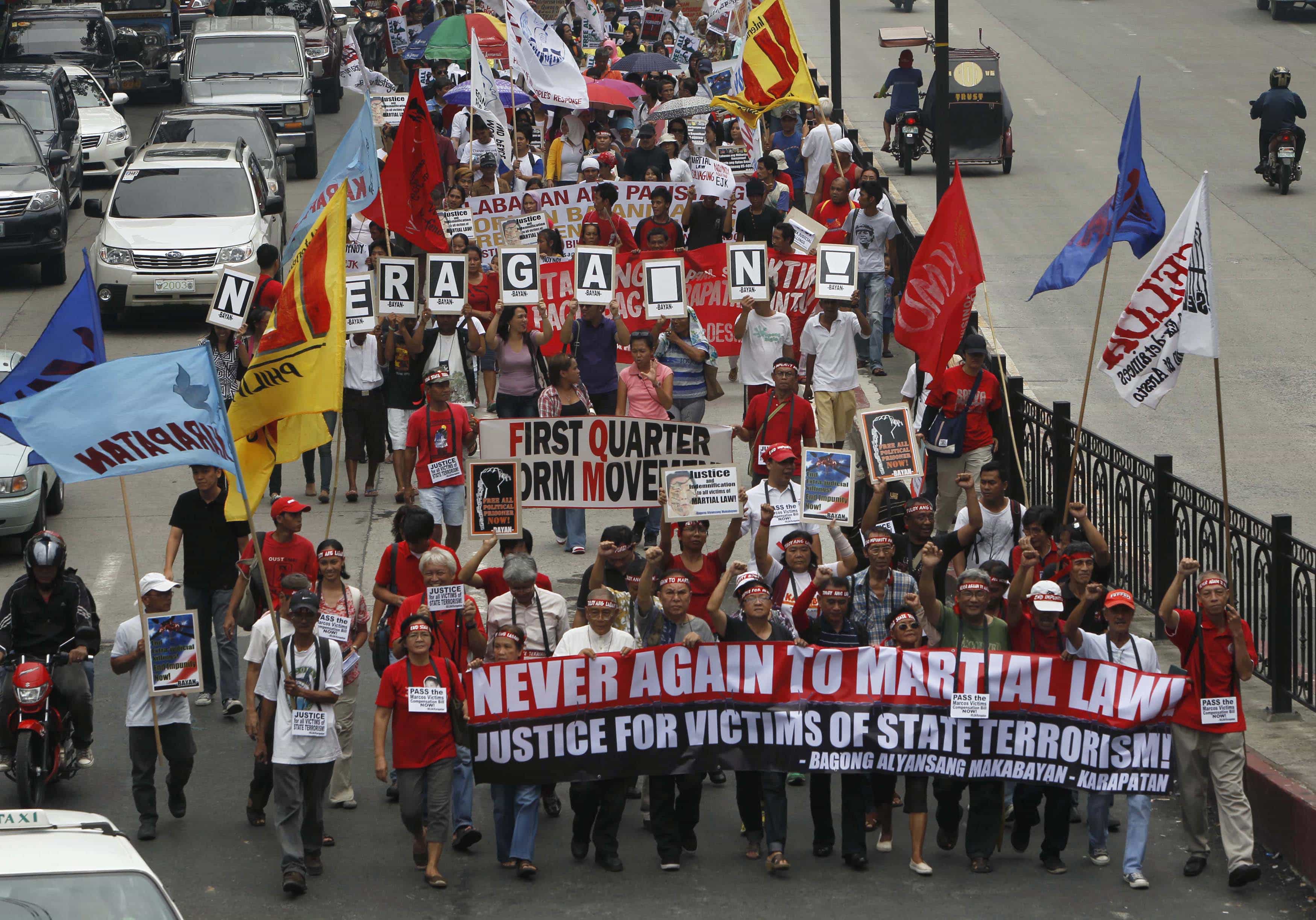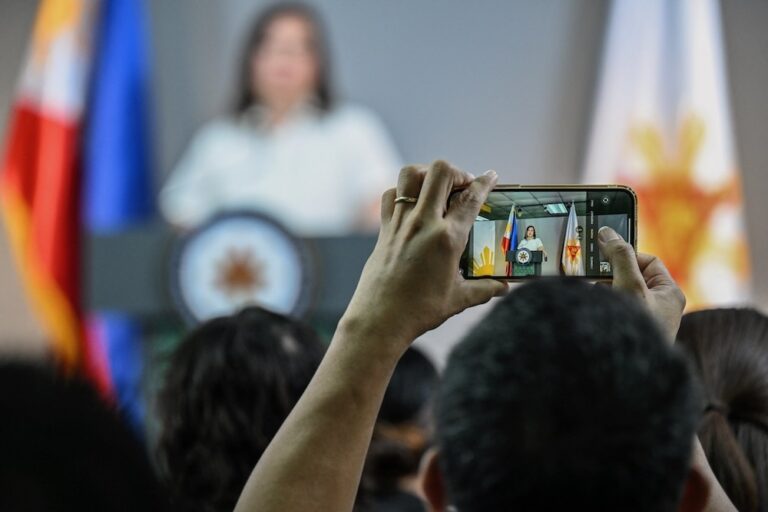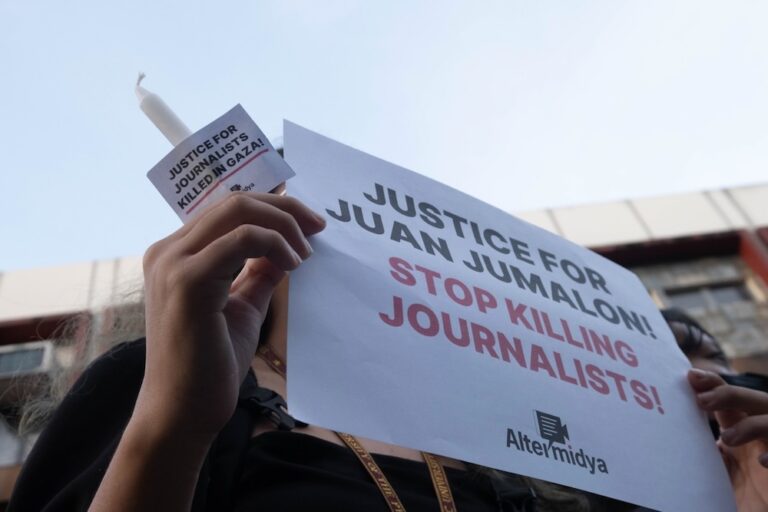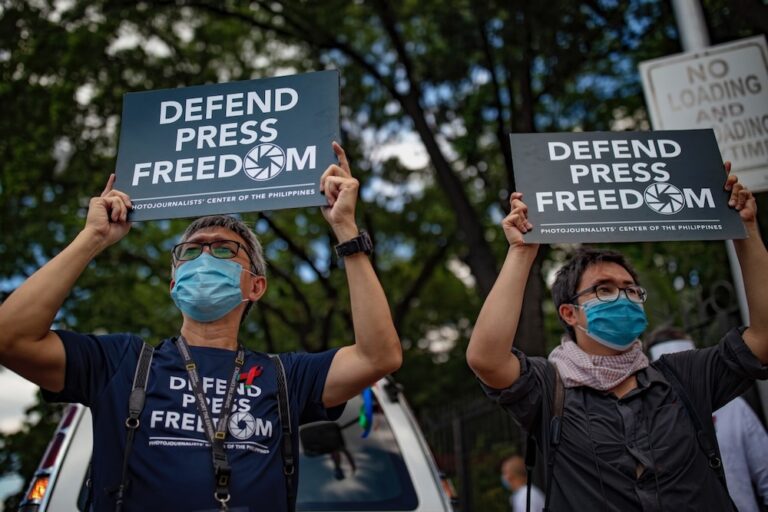The media can & should continue to convey ... the necessity of Never Again allowing authoritarian rule in the Philippines. But of even more importance is the need for everyone to monitor the political system that has remained essentially the same despite the 42 years that have passed since Proclamation 1081, and in the process educate the present and future generations in the need to democratise it.
By Luis V. Teodoro
TO THEIR credit, some radio and TV stations as well as broadsheets have been commemorating the declaration of martial rule in 1972 by airing and presenting special reports every September.
A report by GMA News TV this year, for example, looked into how media organizations were shut down, and some publishers, editors, columnists, broadcasters and reporters arrested upon the September 23, 1972 effectivity of Presidential Proclamation 1081 which placed the entire Philippines under martial law.
A news feature on the martial law period over Star FM radio noted, among other anomalies, that the major supporters of martial rule included now Senator Juan Ponce-Enrile, who was the Marcos regime’s secretary of defense and chief implementor of martial law, and Fidel V. Ramos, who as Chief of the defunct Philippine Constabulary was in command of the detention centers of the regime all over the country, but who nevertheless became President of the Philippines from 1992 to 1998.
In print, the Philippine Daily Inquirer, in commemoration and remembrance of “one of the darkest chapters in Philippine history,” ran a series of articles on the experiences of the men and women who were arrested, detained and tortured during the martial law period, who included, among others, screen playwright Ricky Lee and National Artist for Literature Bienvenido Lumbera.
Most of these reports carried the same message: the imperative for Filipinos to never again allow the imposition of authoritarian rule. But some articles, among them the recollections of a literary social climber more focused on regaling readers with his association with the biggest names in Philippine writing rather than on the fundamental question of why some of these writers supported the martial law regime while others opposed it, also made it to the pages of the broadsheets, together with interviews with college students who, by claiming that the Ferdinand Marcos regime did the country some good, displayed their appalling ignorance of the period.
The same trivialization and ignorance has been evident for years not only among the young but even among older Filipinos, judging from the evidence not only in their issuances in the old media but even in the new. In such social media sites as Facebook and Twitter, the same moral agnosticism and intellectual vacuity approach epidemic proportions every September, when the declaration of martial law in 1972 becomes the subject of posts by, among other groups and individuals, former political prisoners. Ignored, forgotten or never quite learned, much less understood, is how the martial law period not only savaged the Bill of Rights, the economy, and those institutions of liberal democracy such as the press and representative democracy that, though flawed and limited, nevertheless allowed some measure of dissent and free expression, but also established a pattern of abuse and repression from which the country still has to recover, and decimated the ranks of an entire generation of the country’s best and brightest sons and daughters.
The country’s failure to put in place a means of presenting with some guarantee of accuracy what actually happened during the period through an authentic truth commission in the manner of such other countries that emerged from dictatorship and repression as Chile, Argentina and South Africa, has been blamed for the inability of many Filipinos to comprehend the dictatorship’s human cost and the extent to which it set back the country’s democratization and social, cultural and political development.
The blame can most directly be laid at the doors of those who, although experiencing it, failed to convey its meaning to their own sons and daughters. But as the institution charged with providing the information the citizenry needs to understand that and other periods critical to the state of the country, the media necessarily have a share of the blame as well. Missing among the specials, feature stories and other accounts commemorating the 42nd year since the declaration of martial law are analytical pieces on the causes and forces behind the declaration and the fourteen years of repression that followed.
The default implies acceptance of the conventional explanation for the country’s descent into dictatorship – that it was merely the consequence of the ambition and corruption of one man, his wife, and his cronies. It’s a view that suggests that without a Ferdinand Marcos the dictatorship would not have happened. Ignored are the authoritarian roots of the political system itself, whose trappings of democracy concealed the fundamental reality that the handful of families that have been using their monopoly over political power to defend and enhance their economic interests for decades have a critical stake in keeping the system intact.
Maintaining the façade of democratic rule served their purposes so long as it was not challenged. But in the late 1960s, the social unrest consequent to the inequality that for so long has characterized Philippine society reached one of its critical points, developing into a wide-ranging, national, multi-sectoral campaign for change and the democratization of political power that made it difficult for these families to continue ruling in the old way.
The result was a political crisis to which the “solution” – at the time being tested and tried in several other countries in the same predicament – was open authoritarian rule, with Marcos, whose personal ambitions and class interests coincided with those of the ruling families and their foreign patrons, acting in their behalf.
Locating martial rule in the context of the country’s damaged and damaging political culture is indispensable to understanding why authoritarian rule happened – and what is even more crucial, why it can still happen. The media can and should continue to convey to their readers, viewers and listeners the necessity of never again allowing authoritarian rule. But of even more importance is the need for everyone to monitor the political system that has remained essentially the same despite the 42 years that have passed since Proclamation 1081, and in the process educate the present and future generations in the need to democratize it. Among the social institutions vital to mass realization of that imperative is the media.



